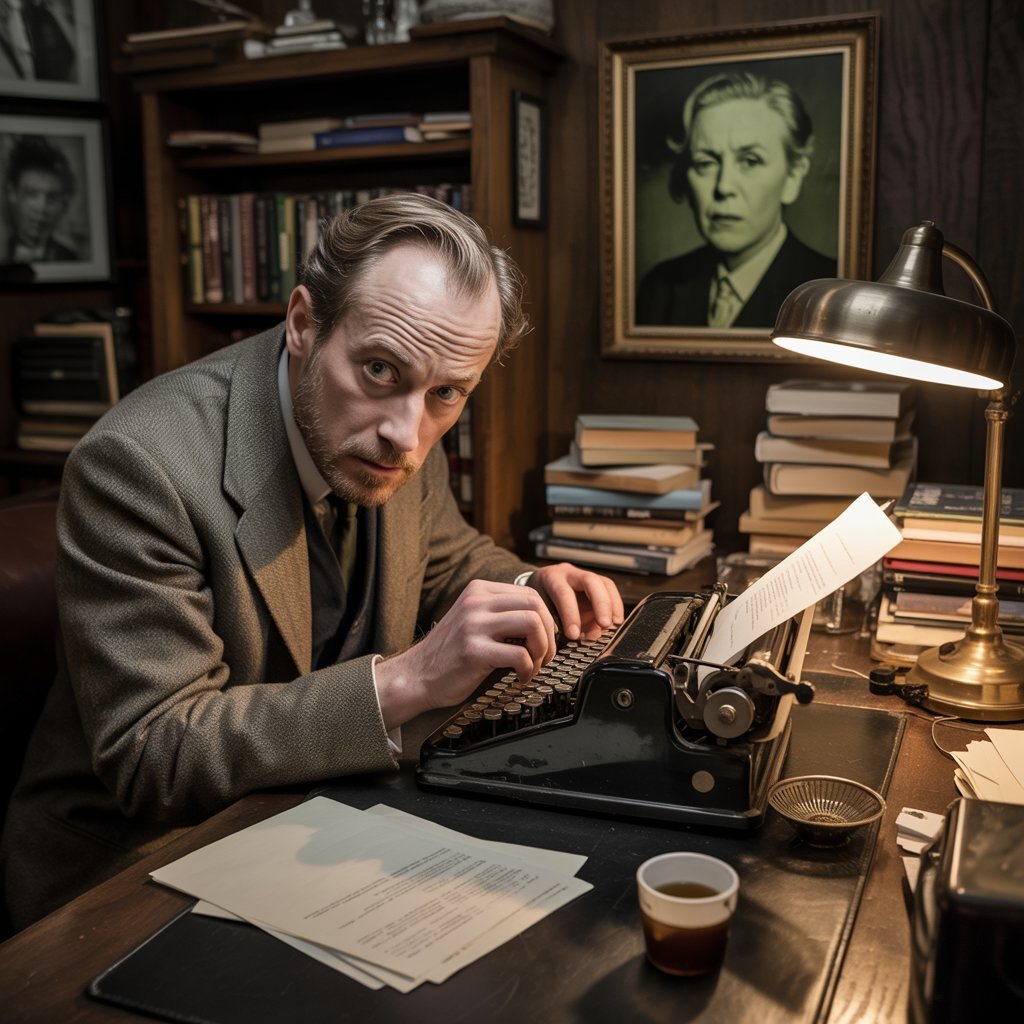On the 21st June I’ll be teaching a course called Creative Writing with Constraints. (Note the word “constraints”, not “restraints”.) This article outlines how I prepared for it.
Read MoreTerry Freedman. Photo by Elaine Freedman.

Terry Freedman. Photo by Elaine Freedman.
On the 21st June I’ll be teaching a course called Creative Writing with Constraints. (Note the word “constraints”, not “restraints”.) This article outlines how I prepared for it.
Read MoreIn this article, I republish a review of mine that was first published in Teach Secondary magazine. Next, there follows the article I actually sent in. The differences are only minor, but I thought you might find it interesting to examine the differences, and consider what difference they make, if any, to your experience and understanding of the review.
Read MoreJust because I love technology and spend a lot of time on the web, and writing for the web, doesn’t mean I’ve eschewed books.
Read More
Shoredticth in black and white, by Terry Freedman
The standard advice for writers who are feeling uninspired or blocked is to allow your mind to wander where it will or to just start writing aimlessly to see what happens. Therefore to suggest the opposite approach, that of imposing some constraints on your thinking, seems completely counterintuitive.
Read MoreFrom the archives: How will Virtual Reality reportage affect our experience of the news? What are the ethical issues involved?
Read MoreUnless you’re so poor at spelling or English in general that a spell-checker wouldn’t do you much good anyway, there isn’t really any excuse for this sort of thing.
Read More
Picture generated in Ideogram.ai
Yesterday I was going to write an article, using chunks of a couple of articles I’d published before (plus some original material).
Read MoreWhat is writing with constraints? In a nutshell, it means writing according to specific and tight rules. The “official” name for this is Oulipo, which is a French acronym for Ouvroir de littérature potentielle.
Read More“One of the unexpected benefits of the Covid-19 pandemic has been clear blue skies.”
Read More
Blogger, by Terry Freedman
Some people say "of course creative writing can be taught", while others say the opposite. I take a slightly more nuanced view.
Read MoreI am afraid I cannot agree with those who say “No” to any use of AI whatsoever. I think the issue is more nuanced than that.
Read More
My writing desk, by Terry Freedman
Here’s my evaluation of WordCounter which, erm, counts words — plus a whole bunch of other stuff.
Read MoreI wrote this review wearing my school teacher hat. However, it struck me that optimism is something all writers need a great deal of!
Read MoreI wrote the review wearing my school teacher hat. However, it struck me that the “small habits” approach to writing is something useful to consider.
Read MoreMy review of this for Teach Secondary magazine has just come out. Here is the published version, followed by the copy I submitted, which is slightly longer because it has a little more detail. I wrote the review wearing my school teacher hat. However, it struck me that the “productive failure” approach to teaching is something I’ve done, to some extent, in my creative writing classes.
Read MoreI’ve reviewed this book for Teach Secondary magazine. Although my review is written from the standpoint of the question, “how useful is AI in schools?”, I do thiink it has relevance here because many writers, and writers’ organisations, are also scrutinising AI.
Read MoreTo the extent that people distrust journalists, is it really surprising?
Read MoreSome research looked at writers’ rituals. Hearing about that made me reflect on my own.
Read MoreI love books, and I love reviewing them. However, I’ve decided that a one-size fits all approach to reviewing books (or anything else, come to that), just won’t do. So I’ve categorised my reviews into 6 types.
Read More